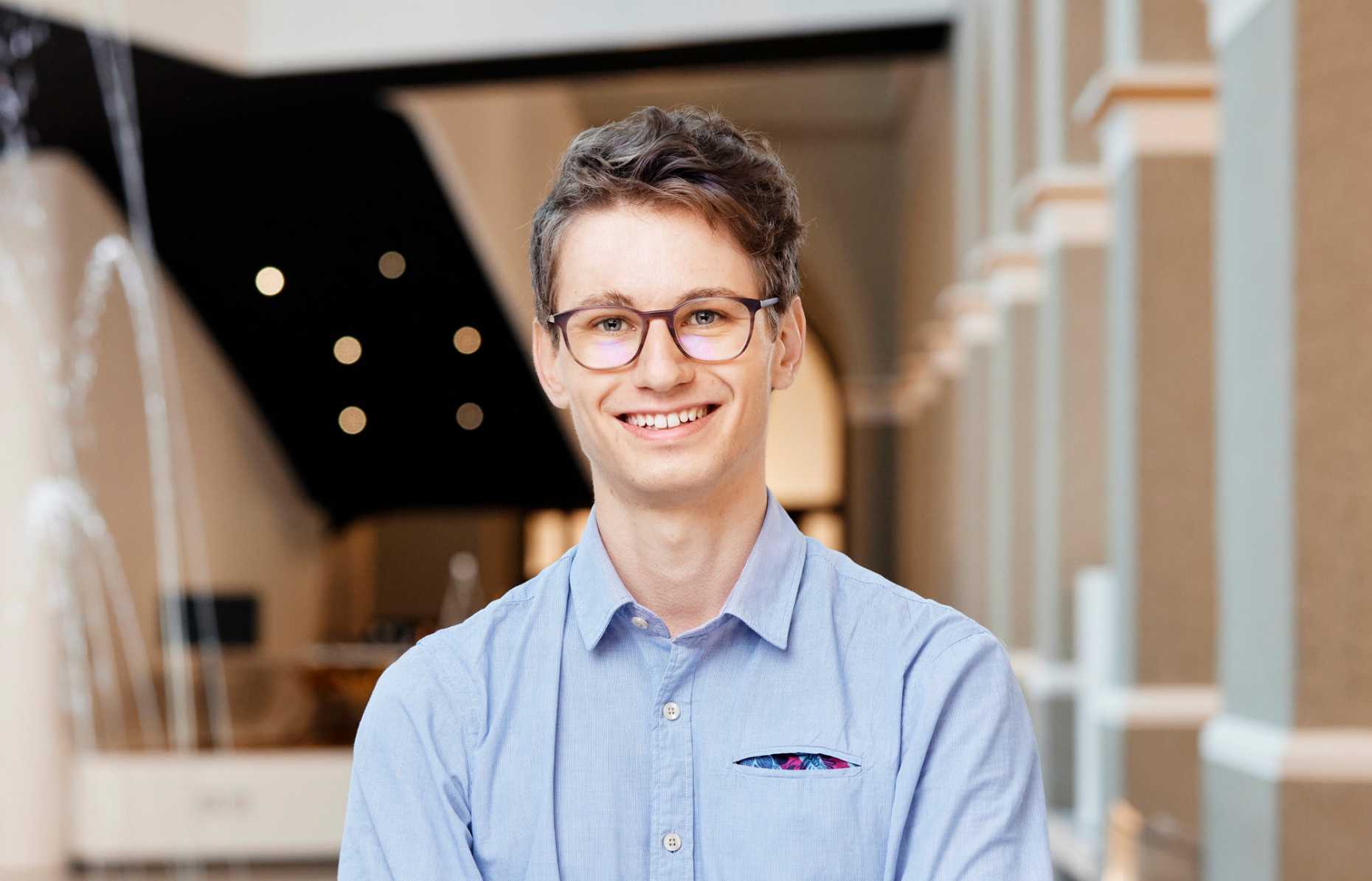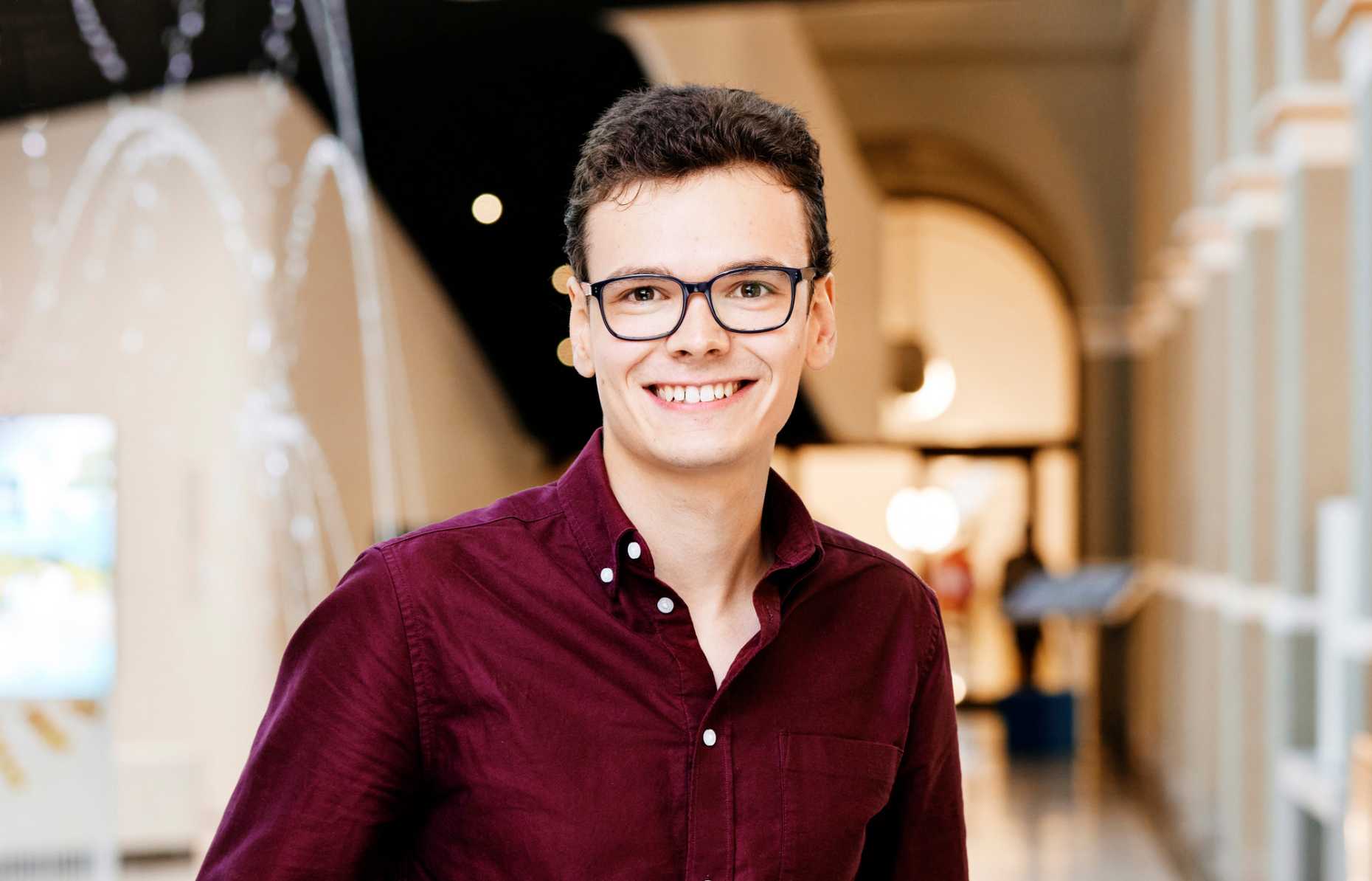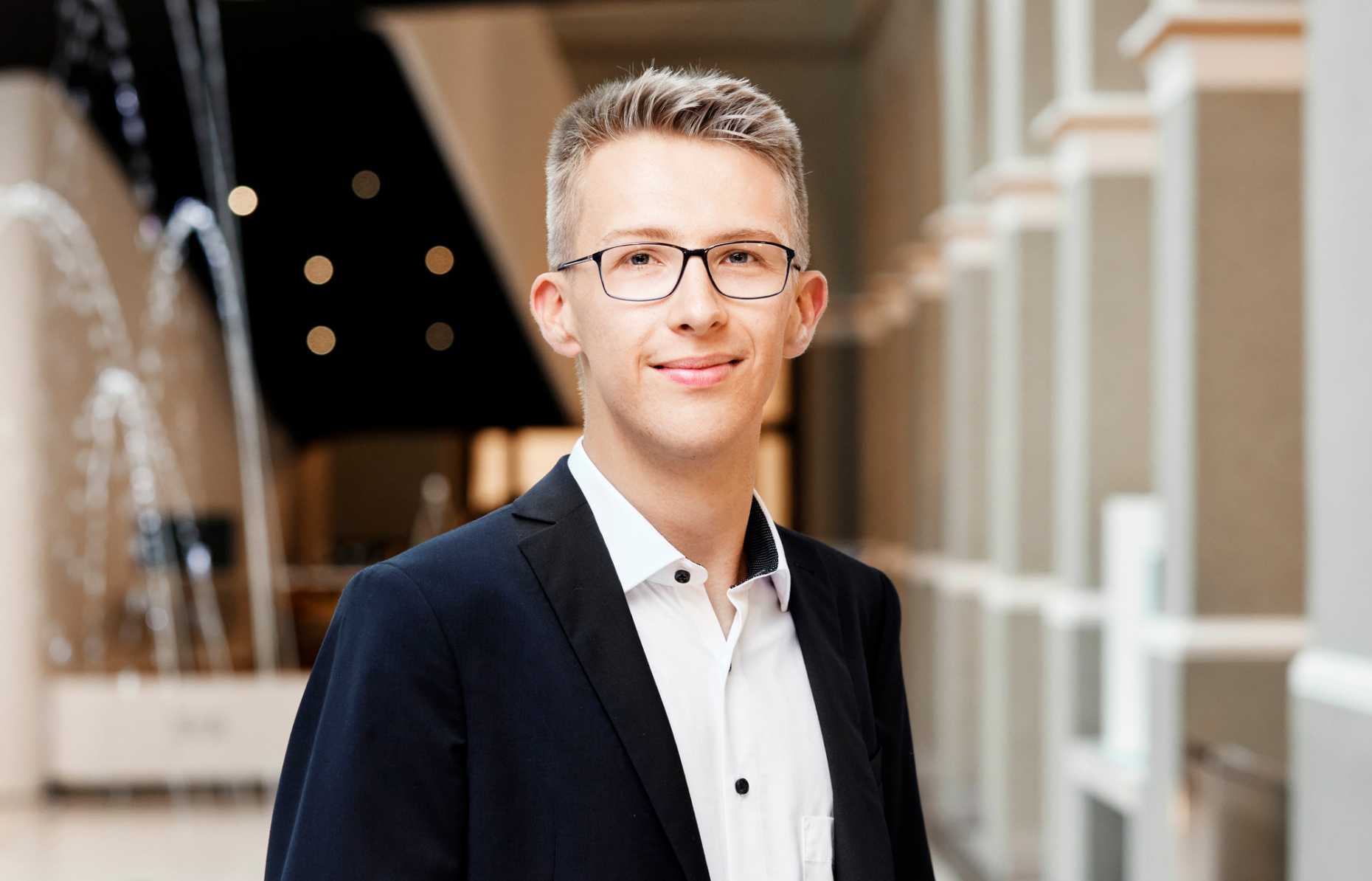Get to know the new excellence scholarship holders at D-CHAB
D-CHAB
The Excellence Scholarship & Opportunity Program (ESOP) of ETH Zurich promotes outstanding students every year. They are among the best and receive support from the donors of ETH Foundation for their Master's studies so that they can concentrate fully on education and research. In the D-CHAB this year, three students were able to convince the jury: Luca Schaufelberger, Stefan Schmid and Nils Lorz. In this article, they briefly introduce themselves.
Luca Schaufelberger – #quantumeffects
"I became interested in natural sciences very early," Luca Schaufelberger recalls, "studying Interdisciplinary Sciences gives me the freedom to pursue what I enjoy and independently plan where I want to go in the future."

During his bachelor's thesis at EPFL and his term paper in Cambridge, Luca has learned about different aspects of solid-state physics. "Understanding materials better is really exciting. I'm fascinated by how we are surrounded by materials, how they work and how quantum effects can be studied. In addition, I'm interested in the interface between new materials and politics, so how to develop technology and bring it into society." Besides research, Luca also enjoys communicating science. The student, originally coming from the canton Aargau in Switzerland, has already organized a series of events for the public and is a board member of Reatch – a scientific think tank. Luca has also initiated a mentoring program for high school graduates in the subject area of water. "This way, the high school graduates can gain insights into science. My own Matura thesis at the time dealt with the interface between water and material, it was about the development of a water filter. In the meantime, I have switched completely to the field of materials," Luca says.
For his Master's thesis, Luca plans to design a circular Josephson junction with twisted, two-layer graphene. "When you put two layers on top of each other and twist them, materials can behave differently – sometimes they behave like metal or rubber, sometimes there is superconductivity." This change in properties comes from the interaction of electrons. "It's not completely understood yet, though. The proposed setting is a relatively simple platform to study exotic quantum effects," Luca explains, "to learn more about such effects may become important in the future for building quantum computers or sensors." In his Master's thesis, however, Luca would like to focus on a better understanding of the physics in these materials. The ESOP fellowship provides the necessary support. "Furthermore, it allows me to continue my projects in the field of communication, in addition to my studies. I am also looking forward to working together with the other ESOP scholars."
Nils Lorz – #NMR
Nils Lorz comes from northern Bavaria. He has already completed his bachelor's degree in Interdisciplinary Sciences at ETH Zurich: "That's why I came to Switzerland. This subject is only available here. I was not sure whether I should choose chemistry or biology. The Interdisciplinary Sciences allowed me to learn more about both subjects, plus new topics I didn't know about before. That's great, and I'm grateful for it."

Nils encountered one of these topics in the microbiology lecture: Type 1 polyketide synthases (PKS) are enzyme complexes consisting of several modules divided into domains. They produce certain metabolites or also antibiotically active substances in microorganisms. "It is amazing that these substances are assembled here in an assembly line-like manner," Nils explains, "incredible that something like this has evolved in nature by chance. Of course, the sheer size of the complexes is also fascinating as well as what you could potentially do with them." Today, PKS are already being used to produce pharmaceuticals. Demand is increasing, but the synthesis of modified polyketides remains difficult – also because the exchange of domains or entire modules often fails due to their substrate specificity. If this could be solved, an important step would be taken towards the wider application of PKS in the synthesis of polyketides, such as new antibiotics.
For his Master's thesis, Nils originally wanted to modify natural PKS. In the meantime, the topic has changed a bit: "I still find enzymes super interesting, but I'm looking at them from a new angle. What I'm doing now for my term paper and planning for the master's thesis is more located in the area of structural biology. Using NMR, I want to explore the natural structure of the system, and how it works." Based on this, the system could then be modified, for instance, by mutations, which would be a step towards an application in medicine. A lecture led Nils to his decision: "I was excited about the method and BioNMR is a interdisciplinary field: it has both biochemical and physical sides." The Master's thesis, however, still needs to be defined more precisely. "The scholarship is an additional motivation, " Nils says, "in addition, it means recognition and is in this sense again a confirmation for me."
Stefan Schmid – #catalysis
"Chemistry already excited me at an early age and it's still fun," Stefan Schmid says. While still at school, the Austrian won silver and bronze medals at the International Chemistry Olympiad. Today, Stefan – now a chemistry student at the D-CHAB of ETH Zurich – is one of the scientific authors for the Olympiad, which will be held in Zurich in 2023, and is also involved in the event in his capacity as president of the Chemists' Association (VCS).

Scientifically, Stefan’s interests are broad. A lecture with Professor Wennemers sparked his interest in peptide synthesis. Thus, for his master's thesis, he decided to focus on solid-phase peptide synthesis – the primary synthesis method for peptides – and wanted to find solutions to the problem of peptide aggregation, which is an obstacle to efficient synthesis. In the meantime, however, Stefan has realized that his path during the master's degree will lead him more into the field of catalysis: "Catalysis will continue to be a big, important topic in the future. There is still a lot to explore, to discover, to improve. This broad field and the opportunity to make a difference are very appealing to me." Stefan is particularly interested in industrial processes, but still in the context of fundamental research, based on which larger applications could then be launched. Stefan would also find a combination with Digital Chemistry quite interesting. Therefore, he attended the Summer School for Machine Learning in 2020. "At ETH Zurich, you are spoiled for choice with the wide range of courses on offer, and catalysis in particular is such a broad field – so far, I only know a fraction of it."
Where the Master's thesis will lead is therefore not yet entirely clear – "possibly in the direction of biocatalysis and metalloenzymes," he ventures. For now, however, Stefan would like to concentrate on his term paper in inorganic chemistry and is happy to get the ESOP scholarship. "This way, I met people I would never have met otherwise. In addition to the financial aspect, the community makes the scholarship particularly attractive."